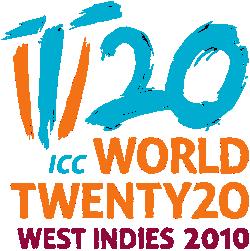Cricket Web’s Review of the World Twenty20
Martyn Corrin |
Rumour has it that it wasn’t actually the infamous Icelandic volcano that caused flights to and from Britain to be suspended over the weekend. It was in fact a cloud of dust eminating from Lord’s, as the England team honours board was cleaned in preparation for its latest entry. Yes, if you missed it, England have their first ICC world title, emerging victorious in the World Twenty20 hosted by the West Indies.
Twenty20 World Cups are not a lot like their fifty over counterpart – you could fit all three of them that have been held so far into the 2007 Cricket World Cup and have time left for a couple of Tests. And there, within that previous sentence, lies the strength and weakness of this tournament. For despite cricket’s reputation as a sport that does not keep with the times (often more than well-deserved), the authorities have recognised that cricket’s commercial future lies in Twenty20. However, it would seem that nobody ever informed these same powers-that-be of a concept known as saturating the market. It remains to be seen whether cricket will kill its golden goose through over-exposure, but three world tournaments in four years is nothing if it is not excessive.
Alas, I speak as an unashamedly biased England fan who is positively delighted that there was a tournament held this year. But was it as enjoyable as the previous ones? From a neutral point of view, I would have to say no. Both of the previous tournaments could boast some scalps to keep things interesting – who can forget Australia crashing to defeat in 2007 against Zimbabwe, or Ireland’s heroic march to the super 8 stage? Not to forget, of course, the most fondly remembered amongst most cricket fans of the upsets, alas not in my house – the Netherlands dramatic victory over hosts England in 2009’s opening game. A game my daughter certainly won’t forget in a hurry, or is it the way I reacted to the events and result that were memorable for her, as she sat next to me? I digress.
Yes, 2010 had plucky performances from Afghanistan, and the ‘what might have been’ factor as rain scuppered Ireland’s hopes of an upset against England. But there were no major shocks, and any sporting tournament gets a boost from a bit of romance.
There was still excitement, however. On the opening day, New Zealand and Sri Lanka played out a cracker which went down to the last but one ball, New Zealand making it home by two wickets, with Nathan McCullum hitting the winning runs. Sri Lanka were involved in another barnstormer as they qualified for the semi-finals when they beat India in the very last ball of the innings. And of course, who could ever forget the marvellous semi-final played out between Pakistan and Australia? It was comfortably the game of the tournament and one of the finest Twenty20 internationals that the game has seen in its short history. After falling to defeat after defeat after defeat to the Aussies at the end of 2009 and start of this year, Pakistan posted 191 and seemed to have Australia on the ropes as wickets tumbled. They were 105-5, the game was gone, as was Pakistan’s run of defeats against Australia. Enter Mike Hussey for a magical display of batting down the order, Australia got home with a ball to spare.
On the most part, though, the tournament was littered with one-sided games. The fundamental reason for that was the fact that two teams stood above all of the others; the finalists, England and Australia.
Australia powered through the tournament in a way which we have become accustomed to, albeit in fifty-over tournaments. They disposed of Pakistan with ease in the first group stage and whilst Bangladesh gave them a scare by restricting them to 141, in the end that game was an easy win for the Aussies. They then weren’t remotely troubled by India, Sri Lanka or West Indies, their new-ball attack caused batsmen a world of pain, Shaun Tait and Dirk Nannes forming quite the partnership. It wasn’t until their semi-final against Pakistan that they were troubled, largely because their bowling was so impressive. It was in this semi-final that the ‘Michael Clarke issue’ really came to the fore, as his slow batting caused great stagnation to the Australian cause. This too would prove the case in the final as Clarke took up 27 balls to score that same number, throw in his disastrous run-out of David Warner and you have Australian public enemy number one, certainly as far as cricket’s shortest format goes.
After a cruel Duckworth-Lewis inflicted defeat at the hands of the West Indies, England set Ireland 120 in a crucial Super 8 game; the rain intervened before Ireland could get to five overs and England went through on net run-rate (it is perhaps worth noting that Ireland were quite a bit behind the Duckworth-Lewis par score after their 3.3 overs). After that rocky start, it is hard to find much fault with England for the rest of the tournament. They stuttered a little en route to beating Pakistan but ultimately the result was never in doubt, and were thoroughly impressive in disposing of South Africa and New Zealand. The semi-final against Sri Lanka was massively one-sided as well, England’s bowlers dominated for them, with just three overs in the tournament being bowled by someone outside of their main attack (Swann, Yardy, Sidebottom, Broad, Bresnan). So impressive was England’s bowlers that James Anderson, generally regarded as the senior bowler within the setup, did not get a look in.
A word too, for Kevin Pietersen. In the past twelve months a lot of cricketing discussion has revolved around who is the better Test batsman out of Michael Clarke and Pietersen. Whilst that is a debate that will rage on, the difference in the old enemies’ number threes in the short format is off the charts. After a rough year in 2009, Pietersen had a good IPL leading into the tournament which would ultimately provide him a platform to go out and dominate. He was the second top-scorer in the competition and was named man of the series, let’s not forget that he also managed to fit in going home for the birth of his son, Dylan Blake Pietersen, and you have quite the fortnight.
So, ultimately, it was an enjoyable tournament but, for those outside of England, not one which will perhaps linger long in the memory. The ICC have got the format of this competition right in making it short and rapid, they now need to focus on setting a standard interval between competitions. Four years would seem logical, but one thing is for certain, we don’t need another one next year. In fact, as an England fan, I’d be happy for them to wait as long as they like before we get another one of these – it’s not often we get to be holders!





Leave a comment